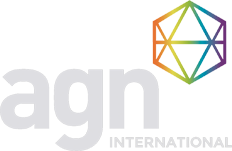The accounting profession is largely self-regulated by the American Institute of Certified Public Accountants (AICPA). Part of its mission involves the development and enforcement of a broad range of standards for the profession.
Why do these standards matter to you? By having a little familiarity with the guidance that accountants and auditors follow, business owners and managers are better able to take advantage of the services offered by CPAs.
Existing Standards
The AICPA requires CPAs to adhere to overarching ethical guidance contained in its code of professional conduct. Additional guidance is contained in standards for the following types of services:
Audit and Attest. These standards must be followed when conducting, planning, and reporting audit and attestation engagements — such as compilations, reviews and agreed-upon procedures — of nonpublic companies.
Preparation, Compilation and Review. This guidance specifically governs such engagements for nonpublic companies.
Tax. These rules apply regardless of where the CPA practices or the types of tax services provided.
Personal Financial Planning. These standards cover such services as estate, retirement, investments, risk management, insurance and tax planning for individuals.
Consulting Services. This guidance applies to CPAs who provide consulting services related to technology or industry-specific expertise, as well as management and financial skills.
Valuation Services. Business valuations may be performed for a variety of reasons, including tax and accounting compliance, mergers and acquisitions, and litigation.
The AICPA also has standards governing the administration of continuing professional education programs and peer review of the work performed by other CPAs.
New Forensic Accounting Standard
Similar to the need for valuation services, demand for forensic accounting services has grown significantly in recent years. So, the AICPA recently added a standard for forensic services. This newly approved guidance covers investigations and litigation engagements involving forensic accountants. It goes into effect on January 1, 2020.
Beware: Statement on Standards for Forensic Services No. 1 places several limitations on forensic accountants, including prohibitions on charging contingent fees and providing legal opinions or the “ultimate conclusion” regarding fraud. Instead, it’s up to the trier-of-fact (generally a judge or jury) to determine innocence or guilt regarding fraud allegations. However, a CPA can express opinions regarding whether the evidence is “consistent with certain elements of fraud” and other laws based on their objective evaluation.
Bottom Line
For any given assignment, a CPA may be required to follow multiple professional standards. In addition, CPAs adhere to general standards of the accounting profession, including competence, due professional care, and the use of sufficient, relevant data. These extensive rules and restrictions are good news for you — they promote the highest levels of quality and consistency when you receive services from a CPA.


